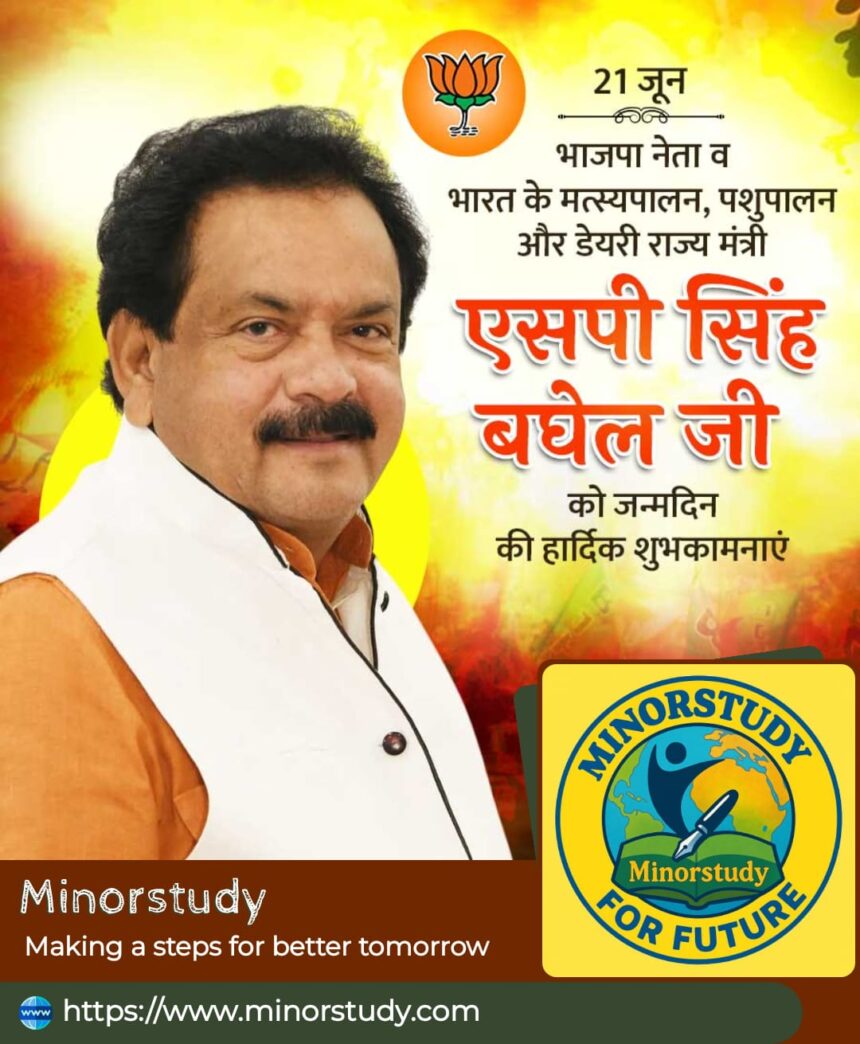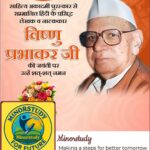🔥 “7 Powerful Truths About S.P. Singh Baghel Ji That Will Inspire Every Indian”
🧭 Introduction: S.P. Singh Baghel The Rise of a Grounded Visionary
S.P. Singh Baghel: Satyapal Singh Baghel, widely known as S.P. Singh Baghel Ji, is a prominent Indian political leader who has consistently demonstrated unwavering dedication to public service, social justice, and grassroots development. From humble beginnings in the heartland of Uttar Pradesh to becoming a Union Minister in the Government of India, his life journey is an inspiration for every Indian dreaming of making a real change.
- 🏛️ History & Background of S.P. Singh Baghel Ji
- 🏆 7 Powerful Facts About S.P. Singh Baghel Ji
- 📅 Timeline of S.P. Singh Baghel’s Career
- ❓ FAQs About S.P. Singh Baghel Ji
- Q1: What is S.P. Singh Baghel’s caste background?
- Q2: Why did he switch from Samajwadi Party to BJP?
- Q3: What makes him significant in Indian politics?
- Q4: What are his notable achievements?
- Q5: Has he held positions outside politics?
- 🎯 S.P. Singh Baghel Significance in Indian Political and Social Landscape
- 🎉 S.P. Singh Baghel Observance and Respect in Society
- 💡 S.P. Singh Baghel Important Points to Remember
- 🙏 Heartfelt Wishes to S.P. Singh Baghel Ji
- 🌍 S.P. Singh Baghel Why He Matters in Our Daily Life
- 🧠 Conclusion: S.P. Singh Baghel A Leader Rooted in the Soil, Visioned for the Sky
Let’s explore his full story—including history, significant facts, contributions, frequently asked questions, milestones, and societal impact—with a tone that’s both human-friendly and reflective of his people-centric approach.
🏛️ History & Background of S.P. Singh Baghel Ji
S.P. Singh Baghel was born on 21st June 1960 in Bhatpura, Etawah district of Uttar Pradesh. Hailing from a modest Scheduled Caste (SC) background, he faced many societal barriers. Yet, through persistence and academic excellence, he earned a Ph.D. in Military Science, proving that one’s roots need not define one’s destiny.
His early life revolved around:
Education: M.A. and Ph.D. in Military Science
Professional Career: Before politics, he served as a professor
Social Identity: Vocal advocate for Dalit rights and social harmony
🏆 7 Powerful Facts About S.P. Singh Baghel Ji
Member of Parliament (4 Terms): He has represented both the Lok Sabha and Rajya Sabha multiple times.
Ex-SP Leader Turned BJP Powerhouse: Initially elected as a Samajwadi Party MP, he joined BJP and rose to national prominence.
Cabinet Ministerial Roles: Served as Union Minister of State for Law and Justice and Health and Family Welfare.
Chairperson of SC Commission: An active voice for Scheduled Castes in India, advocating legal protection and affirmative action.
Grassroots Focus: Always stayed connected to rural constituencies and public grievances.
Legal Luminary: A lawyer by training, he has deep insights into constitutional law and justice.
Cultural Champion: Promotes education, traditional Indian values, and empowerment of backward communities.
📅 Timeline of S.P. Singh Baghel’s Career
| Year | Milestone |
|---|---|
| 1998 | Elected as MP from Samajwadi Party (Firozabad) |
| 2004 | Re-elected as MP (SP) |
| 2010 | Nominated to Rajya Sabha (BSP) |
| 2015 | Joined BJP, emerged as prominent Dalit leader |
| 2017 | Elected MLA from Tundla, UP |
| 2019 | Elected MP from Agra (BJP) |
| 2021 | Became Union Minister of State for Law and Justice |
| 2023 | Appointed Union MoS for Health and Family Welfare |
❓ FAQs About S.P. Singh Baghel Ji
Q1: What is S.P. Singh Baghel’s caste background?
A: He belongs to the Scheduled Caste (SC) community, which has shaped his commitment to social justice.
Q2: Why did he switch from Samajwadi Party to BJP?
A: His shift to BJP was based on ideological differences and his vision of national development and SC empowerment.
Q3: What makes him significant in Indian politics?
A: He combines legal expertise, social representation, and administrative skills, making him a rare multi-talented public servant.
Q4: What are his notable achievements?
A: Passage of SC legal safeguards, rural education reforms, and advocacy for Scheduled Castes’ representation.
Q5: Has he held positions outside politics?
A: Yes, he is a professor and lawyer by qualification, contributing in academic and legal fields.
🎯 S.P. Singh Baghel Significance in Indian Political and Social Landscape
S.P. Singh Baghel is more than a politician; he is a symbol of perseverance. As a Dalit leader, he has empowered many communities that were historically marginalized. His blend of academic intellect and political realism makes him a crucial bridge between policy formulation and grassroots realities.
Champion of the Constitution: As Law Minister, he worked on legal reforms benefiting the underprivileged.
Bridge-Builder: Unites diverse communities with inclusive politics.
Voice for the Marginalized: Advocates for SC/ST rights, especially in education and employment.
🎉 S.P. Singh Baghel Observance and Respect in Society
Across Uttar Pradesh, especially in Agra and Firozabad, S.P. Singh Baghel Ji is celebrated as a “people’s leader.” Community gatherings, student rallies, Dalit youth summits, and rural medical camps often invoke his name.
People respect him for:
Accessibility and simplicity
His powerful oratory in Parliament
His grassroots style of governance
Standing by his people during crises
💡 S.P. Singh Baghel Important Points to Remember
A self-made leader with academic brilliance
Promoter of legal awareness among marginalized groups
Advocated for rural healthcare and sanitation
Encouraged inter-caste harmony and inclusive nationalism
A powerful example of “Politics as Public Service”
🙏 Heartfelt Wishes to S.P. Singh Baghel Ji
On behalf of citizens who believe in inclusive growth, we extend our best wishes to S.P. Singh Baghel Ji for continued strength, integrity, and public service. May his voice continue to uplift those without one.
“May his journey always inspire and transform.”
🌍 S.P. Singh Baghel Why He Matters in Our Daily Life
S.P. Singh Baghel’s efforts indirectly touch the lives of millions:
Legal Awareness Drives educate villagers about their rights.
Affordable Health Access through rural health policies.
Empowerment of Marginalized Youth via scholarships and skill programs.
Protection of Constitutional Rights through proactive legal engagement.
When citizens like us benefit from SC/ST welfare laws, health services, or inclusive education policies, there’s often a visionary like Baghel Ji working silently in the background.
🧠 Conclusion: S.P. Singh Baghel A Leader Rooted in the Soil, Visioned for the Sky
In an era of polarizing politics, S.P. Singh Baghel Ji emerges as a rare blend of humility, legal wisdom, and political courage. His journey from a small village to the Parliament’s inner corridors proves that democracy still holds promise for those who strive sincerely.
As citizens, we must celebrate such individuals—not just for who they are—but for the hope they awaken in the hearts of countless Indians.









I’m still learning from you, while I’m making my way to the top as well. I definitely liked reading everything that is written on your blog.Keep the stories coming. I loved it!